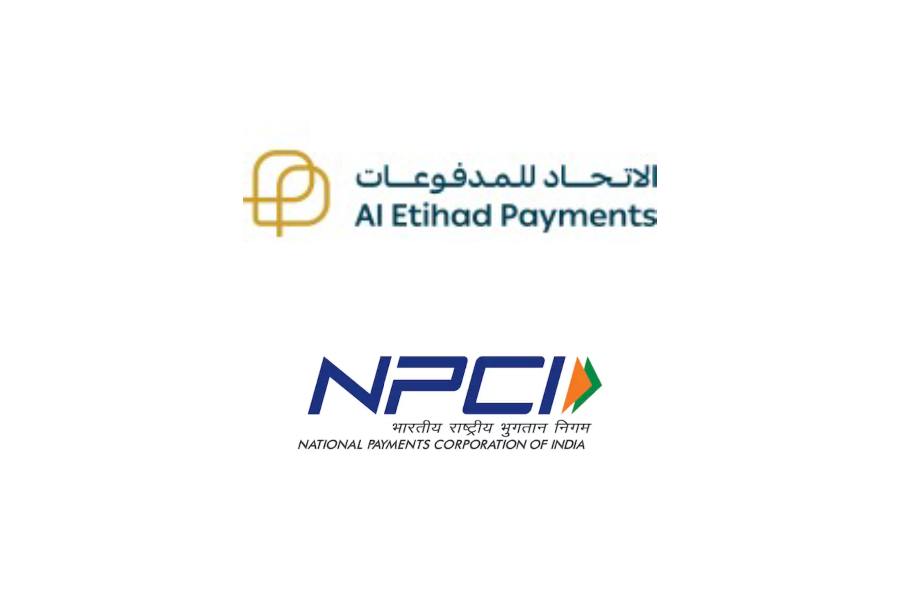NPCI International Payments Ltd, the international arm of the National Payment Corporation of India, on Thursday signed an agreement with Al Etihad Payments to build, implement, and operationalise UAE's national domestic card scheme.
The domestic card scheme (DCS) aims to facilitate the growth of e-commerce and digital transactions in the UAE, bolster financial inclusion, support the UAE's digitisation agenda, increase alternate payment options, and reduce the cost of payments.
"As per the agreement, NPCI International Payments Ltd (NIPL) and AEP will work together to build, implement, and operationalise UAE's national domestic card scheme," an official statement said.
The partnership aligns with NIPL's mission to offer its knowledge and expertise to assist other countries in establishing their own cost-efficient and secure payment systems.
The DCS solution, provided by NIPL, consists of a RuPay stack and value-added services like fraud monitoring services and analytics.
It said that the NIPL will also assist AEP in formulating the operating regulations for their domestic card scheme.
RuPay is an indigenous, secure and widely accepted card payment network in India. RuPay cards have debit, credit, and prepaid propositions. More than 750 million RuPay cards are in circulation as of date.
These cards make up more than 60 per cent of total cards issued in India, with every second Indian having a RuPay card now. They are issued through the entire banking spectrum, including public sector, private, and small banks.
Al Etihad Payments (AEP) is an indirect subsidiary of the Central Bank of UAE (CBUAE).
Commerce and Industry Minister Piyush Goyal said NIPL will be providing technology and support to UAE to implement the RuPay card system in UAE so that the UAE cards can be used in India like the RuPay cards.
After this, RuPay card owners in India can use the card in the UAE without paying extra fees.
"This is the internationalisation of the RuPay card. This opens the door for many such partnerships for NPCI, and it's truly a game changer in terms of integrating business and economies of India and the UAE," Goyal told reporters here.
Explaining it further, Indian Ambassador to the UAE Sunjay Sudhir said: "What the UAE is trying to develop is its domestic credit card system, and India has done it long back...so seeing the strength of our RuPay card, there was a strong interest from the UAE side to have their domestic card".
After a few months of discussions, the agreement was signed under which India will be sharing the RuPay card stack with them. Once the scheme is implemented in the UAE, then any Indian coming here with the RuPay card will be able to seamlessly pay at RuPay card rates, he said.
Similarly, when a resident of this country who has this credit card or debit card from the domestic scheme of the UAE "comes to India and makes the payment, it will again be a seamless payment. So, this is actually promoting cross-border payments in a very seamless and much more cost-effective way," Sudhir added.
Tangible benefits of the agreement include the availability of real-time and cost-effective cross-border remittances for the users of both countries.
The linkage of card switches would enable the cardholders to use their domestic cards (without the need to have global cards issued) in each other's jurisdiction on a reciprocal basis on ATMs, PoS terminals and e-comm transactions.
Further, the linkage of messaging platforms would reduce dependency on multilateral systems like SWIFT, and this will not only be cost-effective but would also provide comfort to both countries in view of the present geo-political situation.
The objectives of the agreement include integrating the Unified Payments Interface (UPI) of India and the Instant Payments Platform (IPP) of the UAE, to process cross-border transactions between two countries more efficiently; and interlinking card switches of the two countries -- RuPay switch and UAESWITCH -- to facilitate the mutual acceptance of their domestic cards and processing of card transactions directly without relying on any other network.
The Central Bank of the UAE introduced UAESWITCH in 1996 to link the Automated Teller Machine (ATM) network of all banks in the UAE, enabling customers of different banks to use any ATM and Point of Sale (POS) facilities.
The move assumes significance as there are about 3.5 million Indian expatriates living in the UAE, remitting a total of about USD 20 billion annually to India.
About 2.3 million Indian expatriates work in blue-collar jobs. This demographic in the UAE is underbanked and financially excluded from mainstream banking.
This creates a unique corridor of opportunity between India and the UAE for various digital solutions in the area of digital payments, connecting the Indian diaspora in the UAE as well as their families in India.
The Reserve Bank of India (RBI), along with NPCI International Payments Limited (NIPL), has been engaging with the Central Bank of the UAE (CBUAE) to link fast payment systems (FPS) and bilateral acceptance of domestic cards between India and the UAE.
Following several rounds of discussions in this regard, including a meeting between the RBI and CBUAE (The Central Bank of the UAE) in January this year, CBUAE shared a draft MOU for collaboration on linkages of FPS, cards, and messaging systems.
In 2022, the National Payments Corporation Of India (NPCI), the umbrella organisation that offers UPI services, signed an MoU with France's fast and secure online payment system called Lyra.
In 2023, UPI and Singapore's PayNow signed an agreement, allowing users in either country to make cross-border transactions.
Except for the headline, this story has not been edited by The Telegraph Online staff and has been published from a syndicated feed.











